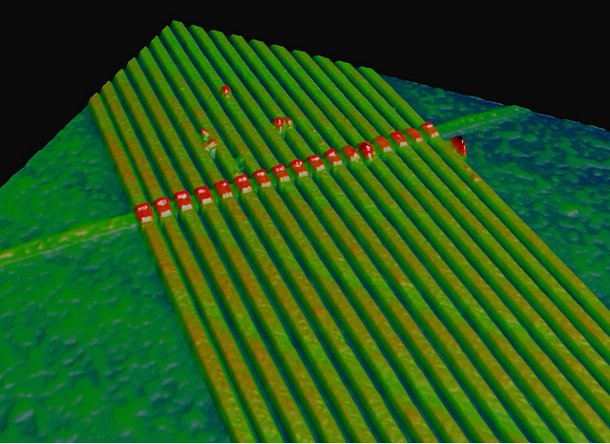HP, Hynix promise memristor memory revolution

HP said on Tuesday that it is preparing to commercialise its memristor memory technology through a deal with Korean chipmaker Hynix.
It predicted that the first products will arrive in around three years, saying that they will be comparable in price and performance to flash memory but with double the capacity. The devices, christened ReRAM (Resistive Random Access Memory), "hold the potential to surpass flash in terms of affordability, total capacity, speed, energy efficiency, and endurance," HP said in a statement.

A circuit with 17 memristors, each composed of two layers of titanium dioxide sandwiched between two wires. Photo credit: HP Labs
"We believe that the memristor is a universal memory technology that over time could replace flash, DRAM and even hard drives," said Stan Williams, director of HP's Information and Quantum Systems Lab, in the statement.
"Memristor memory chips promise to run at least 10 times faster and use 10 times less power than an equivalent flash memory chip." he said. "We believe we can create memristor ReRAM products that, at any price point, will have twice the capacity of flash memory."
Memristors are a novel electronic component that were predicted in 1971 but first publicly demonstrated by HP Labs in 2008. Named for 'memory resistor', a memristor is a single component composed of a thin film of material that remembers the last voltage it experienced. This is far simpler than current memory systems, which use combinations of components per bit. This simplicity leads to the device's potential to make smaller, faster, lower-power memories that can be stacked many layers deep.
"The product itself will look very like a flash memory drive. We're very happy to be working with Hynix. They have tremendous technology and fantastic engineers. As we go through the lab-to-fab transition, we'll be able to get on the fast track to commercialisation," said Williams.
Memristors are not based on silicon but on compounds such as titanium dioxide, and commercialisation will depend on adapting existing semiconductor fabrication techniques to these new materials. Titanium dioxide is far from exotic, however, and is currently found in many products, including toothpaste.